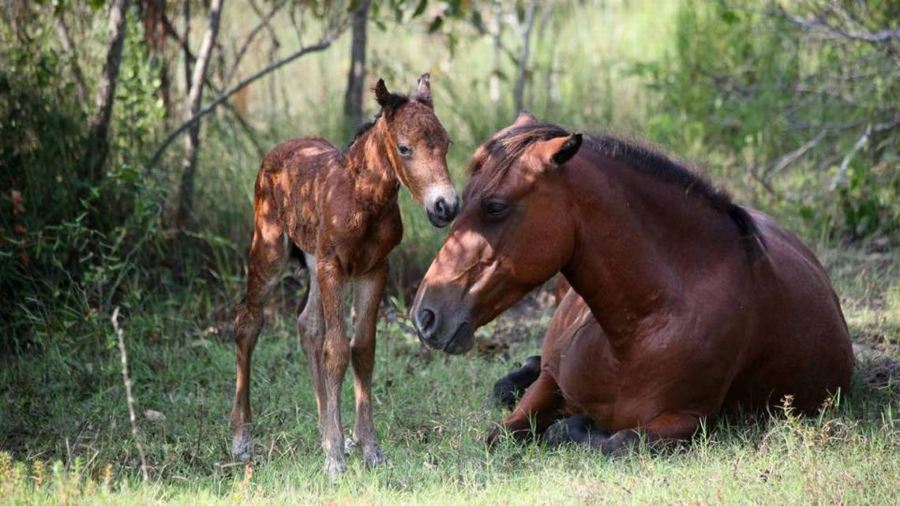RALEIGH, N.C. — Standing on spindly stalk-like legs, she’s still sticking close to mom for now.
North Carolina’s herd of wild Colonial Spanish mustangs roaming freely in the Outer Banks are a “cultural treasure,” and now they’ve added one more to the herd with the birth of a filly, the Corolla Wild Horse Fund recently announced.
“Mother and foal are doing great and dad is being very protective,” CWHF wrote on Facebook, sharing a photo of the brown-haired, dark-maned mother and filly together.
The as-yet unnamed filly is the fifth birth for the herd so far this year, Jo Langone, chief operating officer of CWHF, told The News & Observer. Langone said those interested in her name should “stay tuned” to CWHF social media.
The filly was born the morning of Aug. 22 in Swan Beech, Langone said in a news release.
The herd of about 100 “is one of only two groups of this highly threatened breed left in the wild,” Langone said in the release.
The “Banker” horses on the Currituck Outer Banks were originally transported to the barrier islands “by Spanish explorers in the 16th century. The horses now roam freely on approximately 7,500 acres of habitat north of the paved section of N.C. Highway Route 12 and are managed by CWHF, according to Langone.
The filly is one of five foals born to the herd this year. She shares a dad with a half brother named “Castano,” or “brown” in Spanish, born on Mother’s Day this year. CWFH said she is a “spitting image” of her brother.
In June, a filly named Valor was born, along with another unnamed filly.
A colt also was born in June, but then the colt was attacked and fatally injured by an aggressive stallion, Langone said in the release.
While rare, that kind of aggression does happen, Langone said. Life for the fragile foals can be uncertain.
“It’s always precarious for babies; that’s natural,” he said. “Males in any species are known for killing offspring that aren’t theirs. Not uncommon. We don’t see it happen often here, but it does occur occasionally.”
“The Fund usually sees around six births per year, but is looking forward to a larger crop of foals in 2018/2019 to offset an aging population and the deaths and removals of several horses,” Langone said in the release. “The herd is maintained at between 110-120 individuals.”
“We wouldn’t go over 120 or below around 90,” Langone said. “So we’re at a good number now.”



